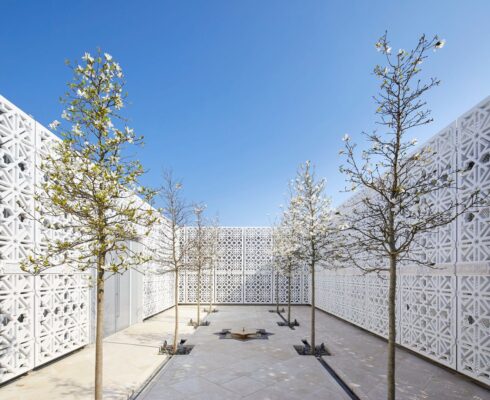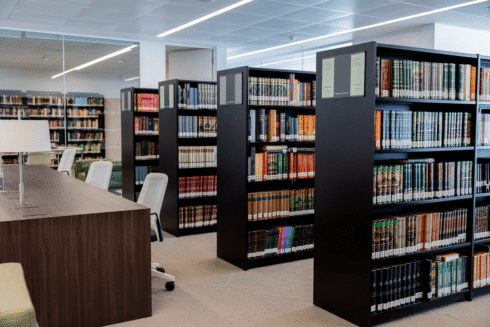The second-largest Shii community in the world, the IsmailisAdherents of a branch of Shi’i Islam that considers Ismail, the eldest son of the Shi’i Imam Jaʿfar al-Ṣādiq (d. 765), as his successor. are settled in over 25 countries across Asia, Africa, the Middle East, Europe, North America and Australia.
Like the ummahCommunity; people who are followers of a particular religion or prophet. It refers in particular to the Muslims as a religious community. More (the community of all Muslims) as a whole, the Ismailis represent a rich diversity of cultures, languages and nationalities. Ismaili traditions fall within four broad geographic and ethnographic groups: Arab, Persian, Central Asian, and South Asian. Settlements in Africa comprise primarily Ismailis of South Asian origins, while recent settlement in the West comes from all these traditions.
Espousing an esoteric, spiritual vision of Islam, the Ismailis are led by a hereditary Imam, whose role and responsibility it is to interpret the faith for the community and to improve the quality and security of their daily lives.
His Highness Prince Rahim Aga Khan is the present and 50th Imam of the Ismailis.
Over the course of their history and under the guidance of their Imams, the Ismailis have constituted a formidable religious and intellectual force, making significant contributions to Islamic thought and cultures.
Ismaili community history
The pursuit and patronage of intellectual enquiry, particularly, has been a hallmark of Ismaili history, doctrine and practice. Ismaili da‘is (summoners) during the Fatimid period, for example, were expected to possess an encyclopaedic knowledge, not only of the Qur’anMuslims believe that the Holy Qur’an contains divine revelations to the Prophet Muhammed received in Mecca and Medina over a period of 23 years in the early 7th century CE. More and the hadith but also history, theology, philosophy, languages, and the natural sciences.
Large, well-stocked, accessible libraries open to all and endowed by the Ismaili Imams were but one manifestation of this ethic of enquiry, as were institutions of learning such as al-AzharA major mosque and institution of learning founded in Cairo by the Fatimid Imam-caliph al-Muʿizz (d. 975). and the Academy of Science known as the Dar al-ʿIlm, in Cairo, Egypt.
This ethic remained equally important during the AlamutFortress of the Nizari Ismailis in northern Iran, which fell to the Mongols in 654 AH/1256 CE. period of Ismaili history (1090–1256 CE) that followed. In territories across Iran and Syria, resident and visiting scholars from far and wide consulted works in libraries in Ismaili centres, exchanged ideas, and wrote texts on a variety of subjects for lay and specialist audiences.
Among the renowned philosophers, jurists, physicians, mathematicians, astronomers, and scientists of the past who flourished under the patronage of Ismaili Imams mention may be made of al-Qāḍī al-Nuʿmān, al-Kirmānī, Nāṣir-i Khusraw and Naṣīr al-Dīn al-Ṭūsī.
Continued spiritual allegiance to the Imam of the Time and adherence to the Shiʿi Imami Ismaili tariqah of Islam has engendered in the Ismaili community an ethos of self-reliance, a commitment to unity in diversity, and a dedication to learning and education.
Over the last 150 years, the Ismailis have witnessed the evolution of a well-defined institutional framework to direct and act on these principles. As such, under the aegis of the Aga Khan Development NetworkThe Aga Khan Development Network (AKDN) is a contemporary endeavour of the Ismaili Imamat to realise the ethics and social conscience of Islam through institutional action. More (AKDN) and other institutions of the Ismaili Imamat, they have established schools, universities, hospitals, health centres, housing societies, as well as transport, tourism, communications, and infrastructure projects around the world, among many other long-term endeavours in the realm of social, cultural, educational, and economic development.
Together with other communities and organisations, these endeavours aim to improve the quality of life for all citizens regardless of race and religion in all the countries where these programmes operate, contributing to the development of a strong and vibrant civil society.
The personal and community sharing of one’s time, knowledge, skills, experience, and expertise aimed at the individual and collective improvement of the safety, security, and quality of life is a deeply ingrained tradition and long-standing practice of the Ismaili community worldwide. It is also a reflection of the Ismaili interpretation of the fundamental Qur’anic ethic to uphold the dignity of humankind.



